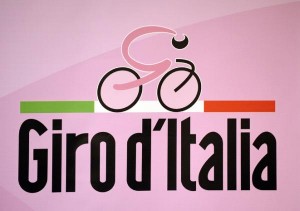Acquarone takes over cycling-related matters, Vegni takes over race management role
 Following weeks of rumours that Angelo Zomegnan was set to lose his position as race director of the Giro d’Italia, race owner RCS Sport has confirmed that he has stepped down.
Following weeks of rumours that Angelo Zomegnan was set to lose his position as race director of the Giro d’Italia, race owner RCS Sport has confirmed that he has stepped down.
“After seven years at the head of the Giro d’Italia, Angelo Zomegnan has asked to leave the responsibility of cycling as well as of the Giro to face new professional challenges,” it said in a statement released today. “Angelo Zomegnan will maintain a role at RCS Sport on specific development projects and an editorial collaboration with La Gazzetta dello Sport newspaper.”
RCS Sport General Director Michele Aquarone will become directly responsible for cycling-related matters. The running of the race will be done along with other individuals; Mauro Vegni, former race director of RCS Sport events and two-time organiser of UCI world championships will take over the role of Sport and Race Management, and will be assisted by former professionals Stefano Allocchio and Alessandro Giannelli. Marco Gobbi Pansana will assume responsibility for marketing matters.
Zomegnan began working as a journalist with La Gazzetta dello Sport in 1979 and became deputy director in 2003. The newspaper has extremely close links with RSC Sport’s cycling events and he took over organisational responsibility for those in 2004.
In that time, he helped revitalise the race by making several changes, including the introduction of new climbs. The course has been once which promoted attacking racing, and was regarded as less formulaic than that of some other Grand Tours. However his time at the helm has also been somewhat controversial, with riders complaining about some unsafe sections of the course plus extraordinarily long pre- and post-stage transfers.
In 2008, riders such as the Briton Bradley Wiggins said that they didn’t get to bed before midnight due to the distances covered; in response, Zomegnan said that nobody forced the riders to come, and that they could simply stay at home if they preferred.
One year later, traffic on the race route in Milan led to a rider strike. Zomegnan was critical of this, and blasted an unnamed ‘older rider’ for starting the protest, and suggested that the unnamed pro had become soft.
“The course requires explosive power and riders to get their butts out of the saddle. Apparently, some older riders have no desire to do so. Instead, it seems as their legs are shorter while their tongues have become longer,” he blasted.
It was widely believed that he was referring to Lance Armstrong, whom the Giro d’Italia had paid a massive starting fee. When asked if his comments were levelled at the American, Zomegnan said, “I never call people who have disappointed me by name, just as I never mention names of girlfriends who have snubbed me.”
While he brought in innovations and a new energy to the race, there was also a perception that Zomegnan was inflexible to some riders’ considerations. This was underlined this year by more long transfers, caused by his desire to visit as many parts of Italy as possible on what was the 150th anniversary of the unification of the country, as well as concerns over the inclusion of the Monte Crostis climb in the parcours.
The descent had poor surfaces and steep dropoffs, and its safety was questioned by a peloton already shaken by the death of Wouter Weylandt in the first week. Zomegnan refused to move on the course, although the Giro d’Italia said it would put up large safety barriers to prevent any riders from going over the edge.
The stage was eventually changed after the UCI’s technical panel intervened. At the time Zomegnan criticised the decision, which had been welcomed by the teams.
Such controversies aside, it is clear that the race has grown in reputation during his time there, and has seen some of the most exciting racing of the modern era. The race organisers say that he made an important difference during his time at the top. “To Angelo Zomegnan RCS Sport tributes recognition and gratitude for the valuable contribution in recent years, which has allowed to significantly increase the reputation and relevance of the Giro d’Italia, both in Italy and abroad.”
It pledges to maintain what it says is “the excellent level of quality achieved so far, aiming at excellence in the organization of sport events.”